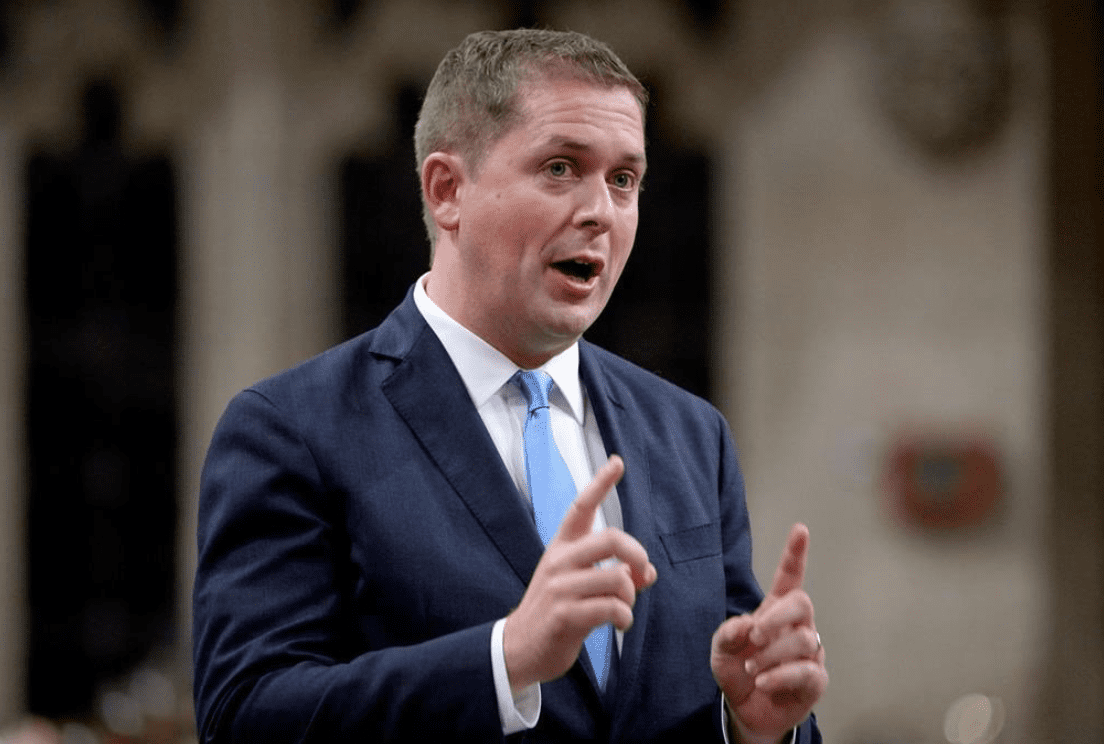Most pundits agree: Andrew Scheer's climate plan is a farce. If the Conservatives wish to be taken seriously in this autumn's federal election, the party will have to redraft its strategy to lower Canada's carbon emissions. Tories would do well to emulate the British Conservative approach by exhibiting leadership rather than acting as laggards.
As other political commentators have highlighted, the Scheer climate plan lacks goals, targets, standards and costs. It exempts small emitters, the source of roughly half of Canada's carbon pollution. Other than a two-year housing retrofit program, Scheer's proposal wouldn't meaningfully improve consumer behaviour. If anything, the plan highlights the official opposition's economic illiteracy usually an area of strength for Conservatives, now meekly ceded to the Liberals.
It would be easy as North Americans to forget that conservatism can offer more to political discourse than an insatiable fervour for small government and lower taxes. Across the pond, rather than trying to fool gullible voters into believing that timid tweaks can save humanity from an existential threat, the British Conservatives are offering the most robust climate leadership anywhere on the planet. A 2008 pledge to reduce carbon emissions by 80 per cent by 2050 was recently surpassed with a bolder promise to eliminate net carbon emissions entirely the first such policy by any major world economy. Unlike Canadian Conservatives, their British equivalents have the wisdom to acknowledge public opinion polls that show most voters seek strenuous climate action from government.
While the British Conservative effort has its flaws such as a lack of numbers and other details, a weakness shared by Scheer's plan at the very least it recognizes the urgency of a government-led energy transition and heralds an ambitious target for the country to strive for. By comparison, Scheer's purported plan offers nothing of the sort.
Environmental stewardship is not a novel policy for the British Conservatives. "Vote blue, go green" was the party's election cry in 2010, the year David Cameron became prime minister after promising a "green revolution." Meanwhile, here in Canada, Scheer is attempting to entice swing voters with a climate plan arguably less enthusiastic than what Stephen Harper peddled a dozen years earlier.
Although condemned to the darker corners of the party tent in recent years, many Canadian Conservatives appreciate the importance of protecting the environment and that carbon pricing is an inherently conservative, market-based approach to reducing carbon emissions. Shadow minister and recent leadership contestant Michael Chong has been vocal on the need for such a carbon-reduction scheme. Former opposition leader Preston Manning and former senator Hugh Segal are equally supportive. Past B.C. premier Gordon Campbell was a "small-c" conservative who implemented the first carbon pricing program anywhere in North America (unfortunately now being undermined by his party successors). And lest we forget Brian Mulroney, who despite governing prior to climate change becoming a prominent issue, was bestowed with the title "greenest prime minister" in 2006.
It is this Red Tory wing of the party that Conservatives must unbind and trust with writing a credible climate plan. Such a shift would require Scheer to eat crow in two regards: by admitting his current proposal is insufficient, as well as abandoning several years of rhetoric that demonized carbon pricing (note: the highest courts in Ontario and Saskatchewan have both declared it's a regulatory charge, not a tax). Rescinding a plan already presented to the public may cause Scheer short-term embarrassment, but a better offering would ultimately make the Conservatives more attractive to swing voters.
As the election nears, the Liberals are likely to increase carbon pricing's appeal by trumpeting the consumer rebate. Financially rewarding the positive behaviour of ordinary people is a feature Scheer's plan lacks, other than the housing retrofit grants proposed for just two years.
With increasing news coverage of global climate collapse, and the Liberals continuing to hammer the importance of environmental stewardship, climate action may well become a prominent wedge issue in this autumn's election. A public opinion poll conducted by Abacus Data in May showed that even a majority of Conservative voters want a carbon-pricing scheme. Scheer must weigh the gains made by being competitive with the Liberals on the environment versus potential losses to Maxime Bernier's fringe splinter party but surely the former would be more electorally advantageous.
If Scheer intends to become prime minister, he must let Michael Chong and other sensible Red Tories revise the Conservative climate effort into a scheme reminiscent of British policy. While climate change was never going to be a core issue for Canadian Conservatives to build their election campaign around, at the very least they should want to prevent it from becoming an achilles' heel for the party. Until recently, Scheer's biggest crime was being bland and inoffensive; as a prospective first minister, he should now wish to avoid being painted as reckless and irresponsible. Why gift a political weakness for opponents to exploit?
When Canadian voters go to the polls, they seek leadership yet Scheer's climate plan proffers anything but. Whether he chooses to fix this frailty may ultimately be determined by which is greater: the size of Scheer's ego, or his desire to become prime minister.
Photo Credit: CBC News










